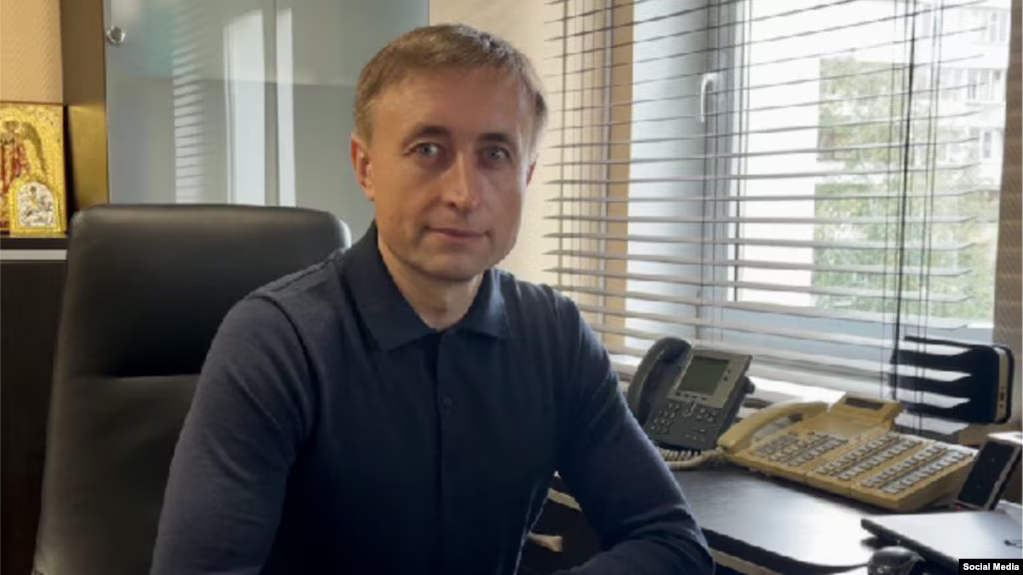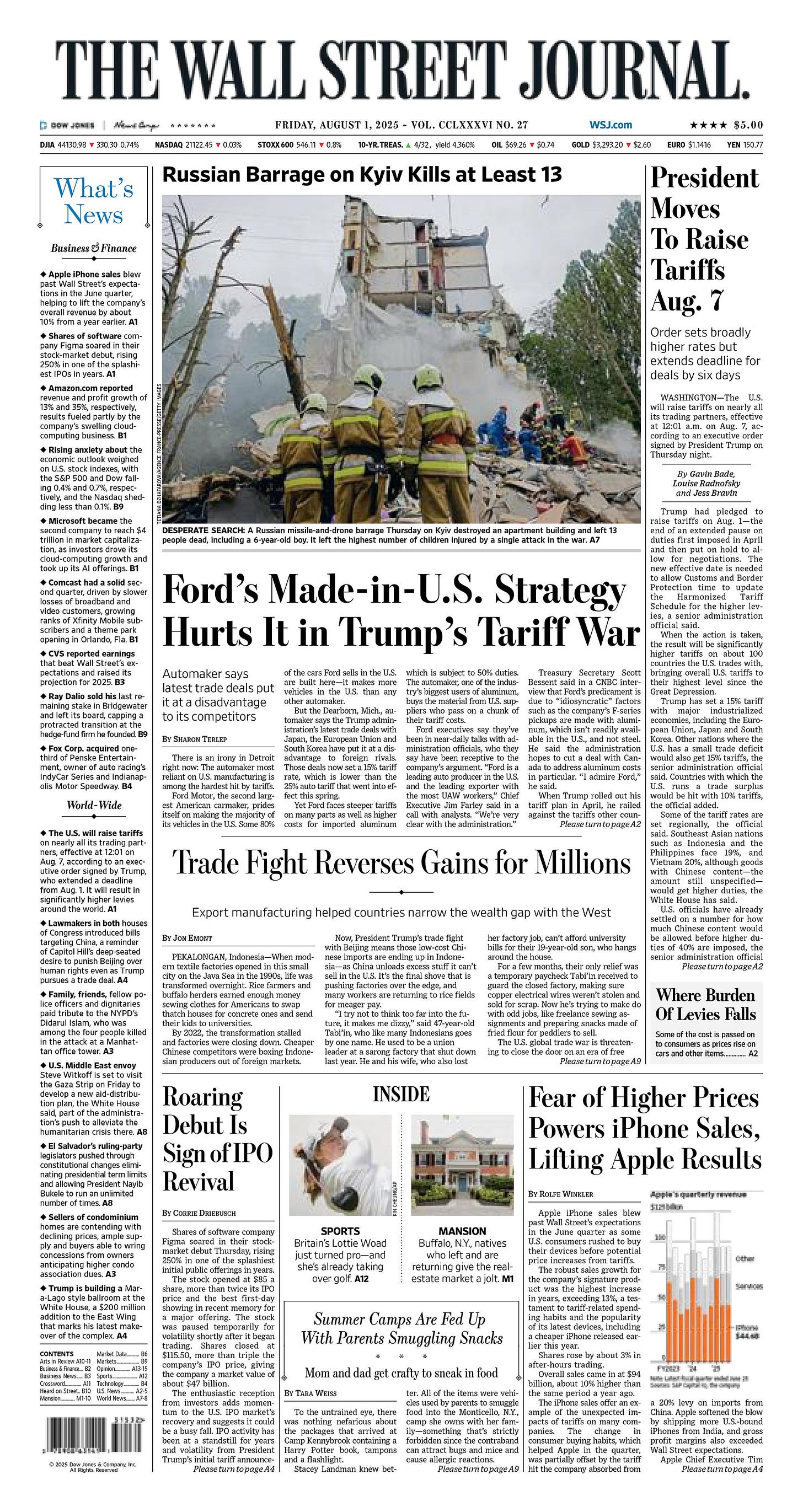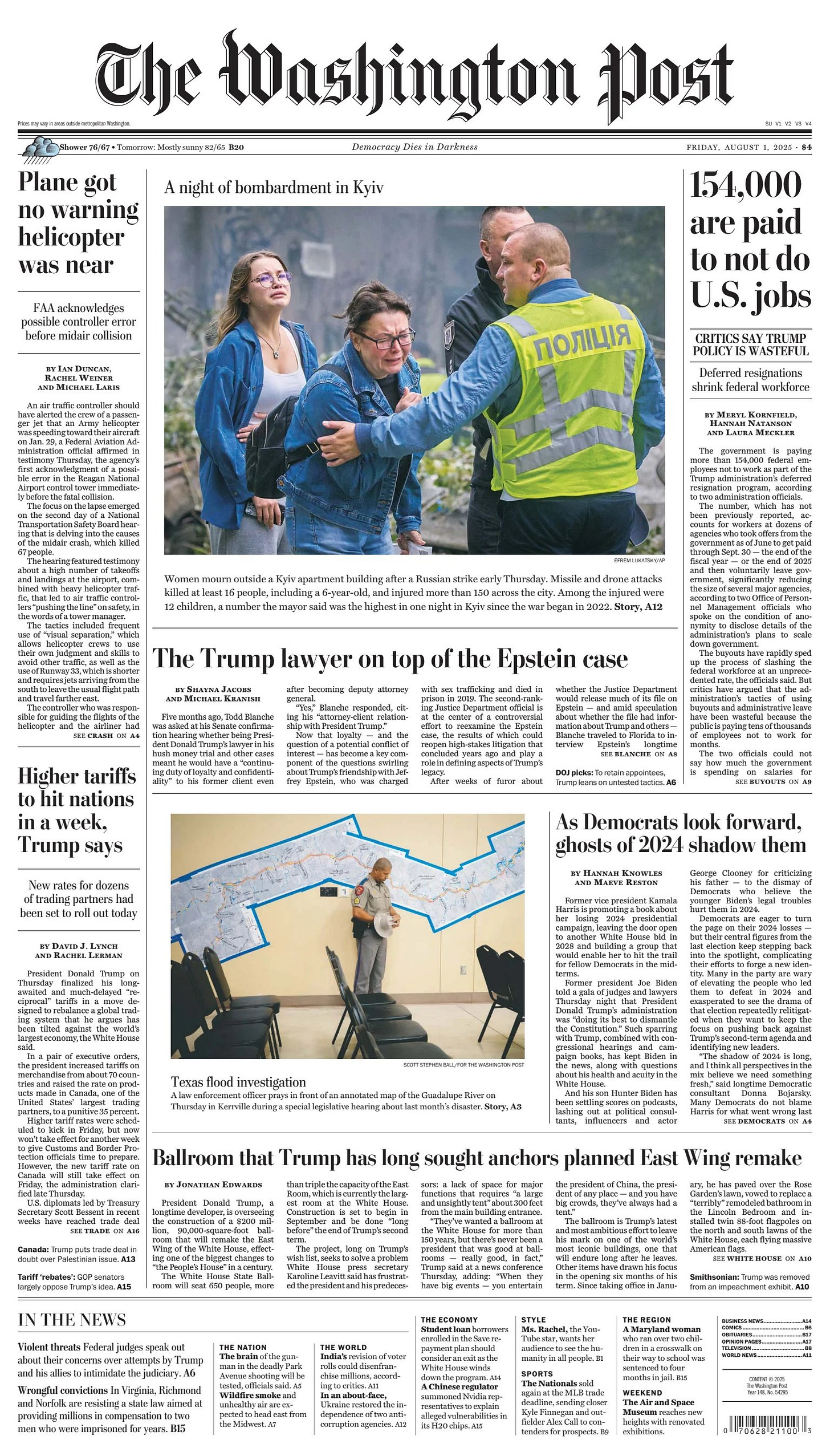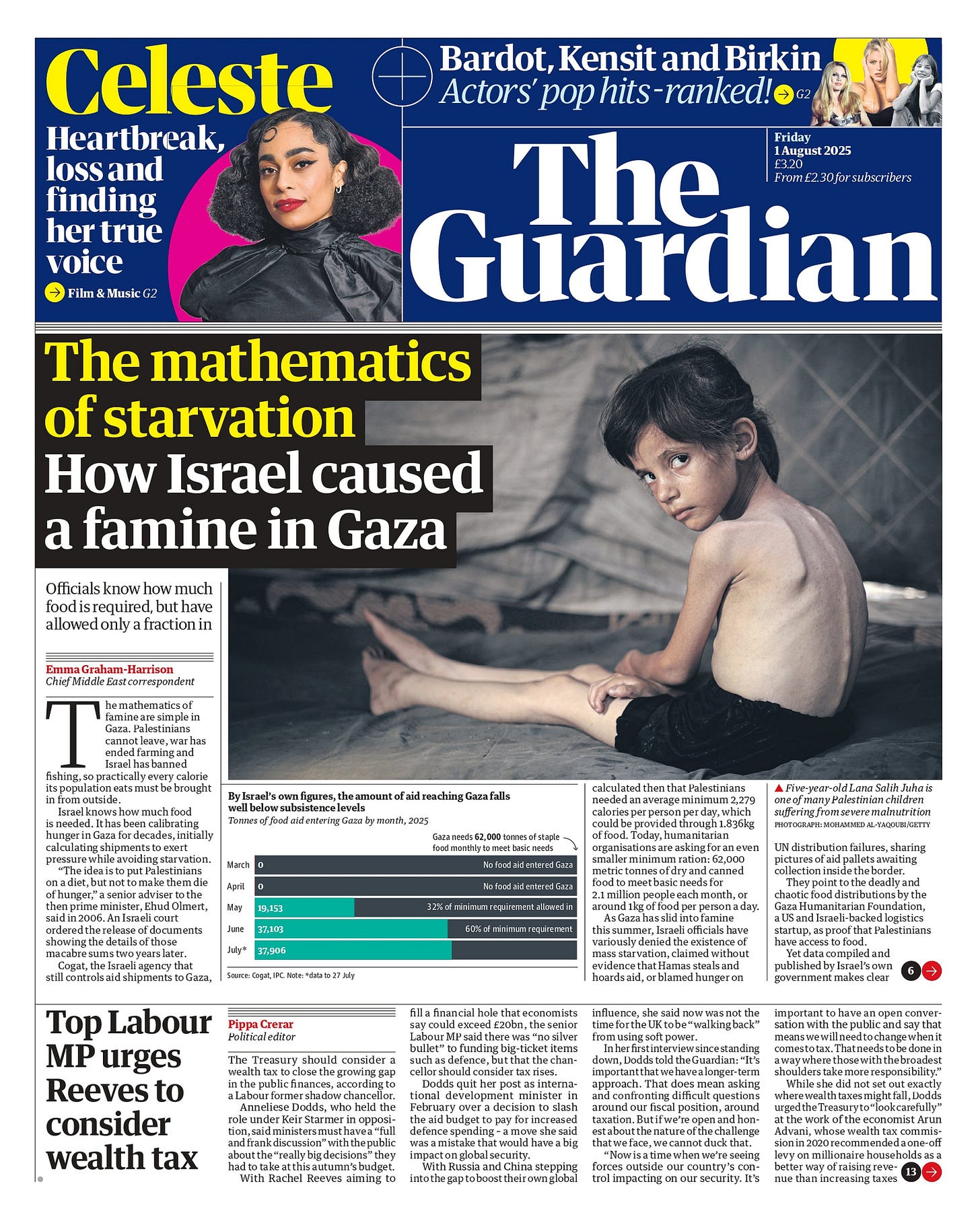Late Recognition: Western Support for Palestinian Statehood Unlikely to Halt Gaza Starvation
Canada, the UK, and France join a growing list of nations acknowledging Palestine, but with famine already gripping Gaza and Israel’s stance unchanged, the move may come far too late to save lives
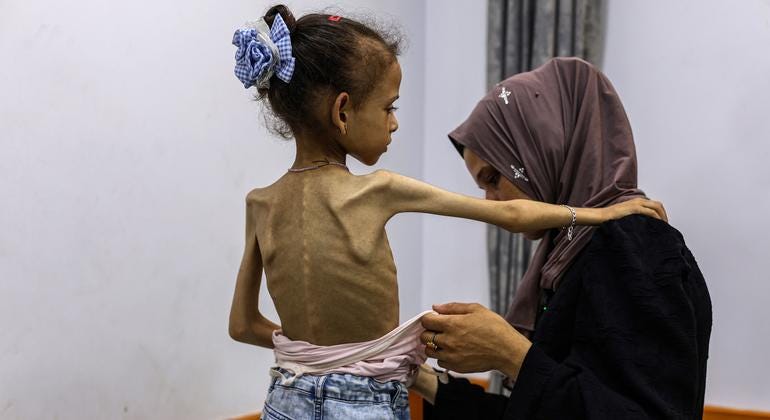
Plans announced by France, the United Kingdom and Canada to recognize a Palestinian state won't bring one about anytime soon, though they may further isolate Israel and strengthen the Palestinians' negotiating position over the long term. The problem for the Palestinians is that there may not be a long term. Israeli Prime Minister Benjamin Netanyahu rejects Palestinian statehood and has vowed to maintain open-ended control over occupied East Jerusalem, the occupied West Bank and the war-ravaged Gaza Strip — territories Israel seized in the 1967 war that the Palestinians want for their state. Israeli leaders favour the outright annexation of much of the West Bank, where Israel has already built well over 100 settlements, illegal under international law, housing more than 500,000 Jewish settlers. Israel's offensive in Gaza has reduced most of it to a smouldering wasteland and is pushing it toward famine, and Israel says it is pressing ahead with plans to relocate much of its population of some two million to other countries. The United States, the only country with any real leverage over Israel, has taken its side. Palestinians have welcomed international support for their decades-long quest for statehood but say there are more urgent measures Western countries could take if they wanted to pressure Israel. "It's a bit odd that the response to daily atrocities in Gaza, including what is by all accounts deliberate starvation, is to recognize a theoretical Palestinian state that may never actually come into being," said Khaled Elgindy, a visiting scholar at Georgetown University's Center for Contemporary Arab Studies. "It looks more like a way for these countries to appear to be doing something," he said. More than 60,000 people have been killed in Gaza as a result of Israel's offensive, according to the Gaza Health Ministry. Fathi Nimer, a policy fellow at Al-Shabaka, a Palestinian think-tank, says they could have suspended trade agreements with Israel, imposed arms embargoes or other sanctions. "There is a wide tool set at the disposal of these countries, but there is no political will to use it," he said. - CBC
Israel faced fresh pressure from the US over its war in Gaza. A visit by two top American officials to Gazan food distribution sites — where hundreds of Palestinians have been killed — is set to spotlight growing warnings of mass starvation in the enclave, while activists pointed to a US Senate vote in which the majority of Democrats voted to block weapons sales to Israel, signaling a break in the bipartisan consensus in Washington backing its ally. Yet the Trump administration has also imposed new sanctions and visa blocks on Palestinian officials in “what appears to be a response to international moves toward recognition of a Palestinian state,” The National said.
Hamas announced it agreed to release Israeli-American Idan Alexander and the bodies of four dual nationals as it demands Israel enter the second phase of the Gaza ceasefire. Shortly after, Hamas said it sent a negotiating team to Cairo to continue talks, as US envoy Witkoff proposed a “bridge” to extend the ceasefire. - Al Jazeera
Pediatrician Dr. Ahed Jabr Khalaf told an NBC News crew in Gaza that malnutrition in the enclave has reached a “catastrophic” stage, especially for children. He went on to warn that without aid, Gaza could “reach a situation where 100 percent of individuals experience malnutrition.”
The Forum of Palestinian Journalists has announced the death of Alaa Hashim, who died of injuries she previously sustained in an Israeli bombardment of Gaza City. Hashim’s death brought the number of Palestinian journalists killed in Israeli attacks on the Gaza Strip since October 7, 2023, to 206. The NGO urged “enabling journalists to perform their professional duties in accordance with international laws and humanitarian conventions
My commentary for the Atlantic Council’s Middle East Initiatives (read other colleagues’ commentary here: Much like UK Prime Minister Keir Starmer, Canadian Prime Minister Mark Carney has been driven by domestic political pressure and deeply rooted national values to make a dramatic foreign policy shift: recognizing Palestinian statehood. Canada now joins the overwhelming majority of UN member states that have already taken this step. What Ottawa likely did not anticipate was Trump reaching for his favorite tool—tariff threats—as diplomatic punishment for upsetting Washington’s close ally, Israel. Yet, this reaction fits with Canada’s broader reorientation of its foreign policy. Under Carney, Ottawa is looking less southward to Washington and more toward Europe and other global partners—his first foreign trip as prime minister was to Europe, not DC, a move that speaks volumes. Canada’s recognition of Palestine was not unconditional. Ottawa sensibly tied it to major reforms, including a requirement for Palestinian Authority President Mahmoud Abbas to hold general elections by next year, to exclude Hamas, and to pursue demilitarization. Canada also pledged financial support to the Palestinian Authority to improve governance—though given the Authority’s reputation for corruption and detachment from its people, success is far from guaranteed. In the broader context, this decision could embolden moderates on both the Israeli and Palestinian sides. Some pundits argue that Carney’s move was purely ethical—pointing to the humanitarian catastrophe in Gaza and Canada’s opposition to policies that perpetuate famine and suffering. (Canada was one of the first Group of Seven nations to recognize Joseph Stalin’s forced famine, or Holodomor, of 1932-33 and create a national annual memorial day.) But there’s likely a domestic political calculation as well. Canada’s fast-growing Arab population, estimated around 100,000, has increasing sway in swing constituencies, and that electoral reality cannot be ignored.
"It's a bit odd that the response to daily atrocities in Gaza, including what is by all accounts deliberate starvation, is to recognize a theoretical Palestinian state that may never actually come into being. It looks more like a way for these countries to appear to be doing something" - Khaled Elgindy, a visiting scholar at Georgetown University's Center for Contemporary Arab Studies.
U.S. President Donald Trump's latest wave of tariffs on exports from dozens of trading partners sent global stock markets tumbling on Friday and countries and companies scrambling to seek ways to strike better deals. As Trump presses ahead with plans to reorder the global economy with the highest tariff rates since the early 1930s, Switzerland, "stunned" by 39% tariffs, sought more talks, as did India, hit with a 25% rate. New tariffs also include a 35% duty on many goods from Canada, 50% for Brazil, 20% for Taiwan. Taiwan said its rate was "temporary" and it expected to reach a lower figure. The presidential order, opens new tab listed higher import duty rates of 10% to 41% starting in a week's time for 69 trading partners, taking the U.S. effective tariff rate to about 18%, from 2.3% last year, according to analysts at Capital Economics. Global shares stumbled, with Europe's STOXX 600 down 1.8% on the day and 2.5% on the week, on track for its biggest weekly drop since Trump announced his first major wave of tariffs on April 2. Wall Street also opened sharply lower on Friday. Trump's new tariffs have created yet more uncertainty, with many details unclear. They are set to take effect on Aug 7 at 0401 GMT, a White House official said. The European Union, which struck a framework deal with Trump on Sunday, is still awaiting more Trump orders to deliver on agreed carve-outs, including on cars and aircraft, EU officials said, saying the latest executive orders did not cover that. Also, it is unclear how the administration intends to define and police the transshipment restrictions, which threaten 40% levies on any exporter deemed to have tried to mask goods from a higher-tariffed originator, such as China, as their own product. The new tariffs will kick in at what has become a perilous moment for the U.S. economy, with U.S. data on Friday showing employment growth was weaker than thought previously. Trump's tariff rollout also comes amid evidence they have begun driving up prices. U.S. Commerce Department data released Thursday showed prices for home furnishings and durable household equipment jumped 1.3% in June, the biggest gain since March 2022 - Reuters
Canadian Prime Minister Mark Carney has voiced disappointment after U.S. President Donald Trump signed an executive order to increase a tariff on Canadian goods to 35 per cent. "While the Canadian government is disappointed by this action, we remain committed to [the Canada-U.S.-Mexico Agreement], which is the world's second-largest free trade agreement by trading volume," the statement read. "The U.S. application of CUSMA means that the U.S. average tariff rate on Canadian goods remains one of its lowest for all of its trading partners. Other sectors of our economy — including lumber, steel, aluminum and automobiles — are, however, heavily impacted by U.S. duties and tariffs." He says the Canadian government will act to protect Canadian jobs, invest in industrial competitiveness, buy Canadian and diversify export markets. Even though the vast bulk of Canada's exports can still cross the border tariff-free, Trump's executive order increases the tariff rate, which had been set at 25 per cent since March, to 35 per cent starting Friday - CBC
Two groups representing businesses in Ontario and Michigan are urging Canada and the U.S. to get a trade deal done in order to avoid prolonged instability. "Prolonged instability could have serious consequences for key sectors, from automotive and advanced manufacturing to agriculture and logistics," a joint statement Friday from the Ontario and Michigan chambers of commerce said.
"This is not just a trade story, it's a North American competitiveness crisis. The chambers are calling on both governments to return to the negotiating table."
Russia’s key naval base in the Far East, home to most of its Pacific Fleet nuclear submarines, appears to have sustained damage during the recent powerful tsunami, newly released satellite imagery shows. A powerful 8.8 magnitude earthquake off Russia's eastern Kamchatka Peninsula triggered four-meter tsunami waves and prompted evacuation orders across the Pacific on Wednesday. The shallow earthquake, described by the region’s governor as the “strongest in decades,” damaged buildings and injured several people in the remote area. Powerful waves struck parts of Kamchatka, partially flooding a port and a fish processing plant in the town of Severo-Kurilsk while sweeping vessels from their moorings, regional officials and Russia's emergency ministry said. However, new satellite images have revealed that the tsunami may also have military implications. Images captured by U.S.-based Umbra Space and published by The Guardian show a section of a pier at Russia’s Rybachiy naval base bent and displaced from its original position, suggesting it was torn loose by the force of the tsunami. The Rybachiy base houses most of Russia’s Pacific Fleet nuclear submarines. Located within Avacha Bay, the base is home to advanced Borei-class nuclear submarines alongside older Soviet-era Delta-class vessels. These submarines form a critical part of Russia’s nuclear deterrent in the Pacific since they are positioned closer to the U.S. than any other such vessels, aside from those on forward deployment - TVP
Kremlin-backed hackers are targeting foreign embassies in Moscow, Microsoft warned. Russian internet service providers are obliged to work with the government, and attackers use them to plant malware on diplomats’ computers, apparently allowing them to see passwords and bank details and to change what users see, perhaps showing them fake login pages. The group behind the effort is believed to be a Russian security service unit, and among “the world’s most active and sophisticated state-sponsored hacking groups,” said Ars Technica. Cyberwarfare and espionage is an increasingly vital tool for governments: A US- and Israeli-designed “worm” damaged Iranian nuclear centrifuges in 2010, and more recently, a Ukrainian cyberattack grounded hundreds of flights by Russia’s state airline. - Semafor
The family of a senior Ukrainian customs chief has a portfolio of luxury real estate and cars amid concerns over corruption that have sparked Ukraine’s biggest protests since Russia’s full-scale invasion in 2022. The findings - revealed by Schemes, the investigations unit of RFE/RL's Ukrainian Service - raised questions about the lifestyle of 44-year-old Anatoliy Komar and his family. The case also underlines why ordinary Ukrainians and Western governments have pushed Ukraine's president, Volodymyr Zelenskyy, to reverse a law that took away the independence of the country’s leading anti-corruption bodies. Komar became head of the Customs Service department that levies duties on imports and exports of oil, gas, and other energy in February 2022, just before Moscow's all-out invasion. Soon after, he was also tasked with preventing prohibited Russian fuel entering the Ukrainian market. Prior to working at the Customs Service, he had a 20-year career at Ukraine’s Security Service (SBU) and a spell at a private energy company. In addition to Komar’s monthly salary of about $2,000, the family’s main income comes from his wife, Maria, who works as a tour guide and offers online courses. Her declared income is much higher, at around $8,000 per month. But a detailed look at the family outgoings suggests a much higher income would be required to support their lifestyle. For example, the couple have officially declared that their daughter lives in Ukraine, but this does not appear to be the case. In May 2023, she posted a photo on social media showing her graduation from the Pascal English School in the Cypriot capital, Nicosia, which had annual fees for education and accommodation of some $33,000. Her social media feed also shows her at a Van Gogh exhibition in London, jet skiing in Albania, and enjoying visits to Venice, Dublin, and Montreux. This year, she appears to be studying at King’s College London, where undergraduate tuition fees for non-UK students alone are nearly $35,000 per year. Asked to explain how this was financed, Komar told RFE/RL that he would not comment on personal matters. When pressed, he said it was paid for by a “godfather” who was a “fairly wealthy person,” but did not elaborate. Komar’s wife, Maria, said she would answer questions in writing, but has not done so. Read the full report here
Israel's National Security Council issued an updated travel advisory for Israelis planning to visit the United Arab Emirates in a statement released Thursday. Israel is evacuating most diplomats from the UAE, following the travel warning. This change comes in response to growing concerns about terrorist organizations, including Iranian factions, Hamas, Hezbollah, and global jihad groups, increasing their efforts to harm Israel. These groups are believed to be particularly motivated by the recent war with Iran and the heightened anti-Israel sentiment since the start of the Israel-Hamas war - Jerusalem Post



